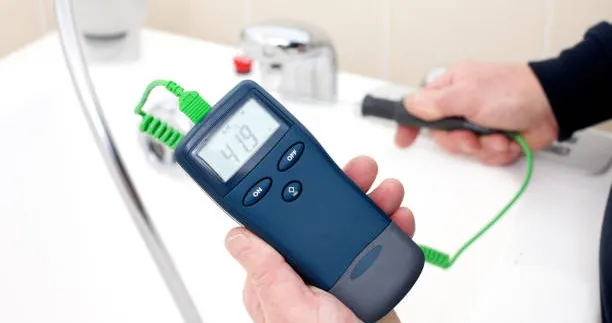Latest News

The Importance of Conducting Robust Transport Validation Under Representative Conditions as per EU Good Distribution Practices (GDP) for Medicinal Products.
Over the past two weeks, we have been very busy transporting ourselves across the continent to CPHi, and we are only getting around to our regular weekly deep dive now. So this week, I thought it would be relevant to discuss the importance of robust transport validation, its key components, and how adherence to representative conditions, as mandated by GDP guidelines, is essential in maintaining the highest standards of pharmaceutical distribution.
It is crucial to validate the transport of medicinal products under representative conditions in order to ensure their quality, safety, and efficacy throughout the supply chain. The Good Distribution Practice (GDP) guidelines for medicinal products, which were introduced in 2013, place significant emphasis on safeguarding products during transportation to prevent risks such as temperature excursions, contamination, or damage. By following these guidelines for transport validation, stakeholders in the pharmaceutical industry can guarantee compliance, minimise risks, and maintain the integrity of medicinal products from the manufacturer to the patient.
Understanding EU GDP Guidelines for Medicinal Products
The EU GDP guidelines for medicinal products establish the minimum standards that companies involved in the distribution of medicines must follow. These guidelines apply to all entities along the supply chain, including manufacturers, wholesalers, and transport companies, and encompass aspects such as the storage, handling, and transportation of medicinal products.
A key component of GDP compliance is ensuring that medicinal products are transported under conditions that maintain their quality, particularly regarding temperature-sensitive pharmaceuticals like vaccines, biologics, and certain over-the-counter drugs. Even minor deviations in temperature or humidity during transport can degrade the product, compromising its efficacy or, worse, making it unsafe for use. To mitigate these risks, the guidelines mandate that transport systems be rigorously validated under representative conditions.
What is Transport Validation?
Transport validation refers to the process of systematically testing and verifying that a transportation system can consistently perform within the specified parameters to maintain product quality during transit. This involves documenting the transportation routes, packaging materials, containers, and temperature control systems used in the distribution process.
Validation is not a one-time exercise. Instead, it involves ongoing monitoring and re-evaluation to account for changes in external factors such as seasonal variations, new transport routes, or updated packaging technologies. The goal is to prove that under worst-case scenarios, the transport system can protect medicinal products from risks that could compromise their quality.
Why Robust Transport Validation is Crucial
Ensuring Product Integrity and Patient Safety
Medicinal products must remain stable, efficacious, and safe for consumption throughout their journey from production to the patient. Robust transport validation ensures that the distribution system can protect the quality of the product by maintaining the required conditions, particularly for temperature-sensitive products. Failure to validate transport processes can lead to temperature excursions, contamination, or physical damage to the product, potentially rendering it unsafe for use. Given that patients rely on medicines to maintain their health or recover from illness, ensuring the efficacy of each batch is a critical priority.
For example, some protein-based drugs denature easily at elevated temperatures or are damaged if exposed to freezing conditions. Even brief periods outside of the specified storage conditions can compromise their effectiveness, resulting in a lack of efficacy. A robust transport validation system ensures that such excursions are prevented or detected in time to take corrective actions.
Compliance with Regulatory Requirements
The GDP guidelines require companies to validate their transport systems, and failure to comply can result in severe penalties, product recalls, or loss of distribution licenses. Non-compliance can also lead to reputational damage, which is particularly critical in the pharmaceutical industry.
Authorities such as the European Medicines Agency (EMA) and national regulatory bodies routinely audit companies for GDP compliance, and transport validation is a crucial aspect of these audits. A well-documented and validated transport system satisfies regulatory requirements and demonstrates the company's commitment to maintaining high standards of product safety and quality.
Minimising Financial Losses
Transport failures can lead to product wastage, leading to significant financial losses. For temperature-sensitive medicinal products, which are often high-value items, even slight deviations from the required conditions can result in the rejection of entire shipments. These financial losses go beyond the immediate product cost, impacting inventory management, supply chain continuity, and market availability. In addition, addressing a failed transportation process can result in significant costs, including expenses related to product replacement, implementing corrective actions, and potential legal liabilities. By conducting robust transport validation, companies can significantly reduce the risk of such failures and the associated costs, leading to more efficient and predictable logistics.
Protecting Your Reputation
In the highly competitive pharmaceutical industry, trust is paramount for success. It is essential for companies to maintain a reliable supply chain to prevent product degradation or harm to patients, as any failure in this regard can seriously damage the company's reputation. Consistently demonstrating compliance with GDP standards through robust transport validation helps to reinforce the company's reliability and commitment to delivering safe and effective medicines.
Conducting Transport Validation Under Representative Conditions
Defining Representative Conditions
Representative conditions are those that mimic the actual environmental conditions that medicinal products may encounter during transportation. This includes the typical climate of the transportation routes, the type of vehicles used, and the expected duration of transit. In transport validation, it is essential to account for worst-case scenarios, such as extreme temperatures during winter or summer, delays in transit, or mechanical failures in temperature-control systems.
The EU GDP guidelines require companies to conduct transport validation under these real-world conditions to ensure that the entire supply chain remains robust, regardless of external variables. Validation processes must simulate the conditions that could potentially occur during distribution to prove that the system can maintain the required product quality even under challenging circumstances. Many regulatory authorities will require that the system (packaging materials, containers, and temperature control system) go through actual real-world shipments from point to point to verify effectiveness.

Temperature Mapping and Monitoring
Temperature control is a critical aspect of transport validation, especially for products that are highly sensitive to environmental changes. One of the most important elements of validation is temperature mapping, which involves placing sensors at various points inside the transport vehicle or packaging to track temperature fluctuations throughout the journey.
During transport validation, companies must map temperature profiles over several trips, including during different seasons, to ensure that the system can consistently maintain the appropriate conditions. In case of any deviations, companies must take corrective actions to address weaknesses in the system and, if necessary, revalidate the transport process.
Testing Packaging Solutions
The choice of packaging plays a significant role in protecting medicinal products during transport. Packaging must be validated to ensure that it can insulate the product from environmental conditions such as temperature and humidity fluctuations. For example, insulated packaging or active temperature-control packaging (e.g., refrigerated containers) may be required for certain sensitive products.
As part of the validation process, packaging solutions are tested under real-world conditions to assess their ability to maintain product stability. This can include subjecting the packaging to simulated transportation environments, such as shaking or vibration tests, to evaluate their durability and ability to protect the product against physical damage.

Continual Monitoring and Re-evaluation
Transport validation is not a one-time process but requires ongoing monitoring and periodic re-evaluation. Seasonal changes, new routes, or changes in transport partners can introduce new risks that must be assessed. Monitoring systems, such as data loggers or GPS-enabled temperature tracking devices, help in real-time oversight and provide valuable data for continued validation efforts.
Transport validation under representative conditions is a vital process in ensuring compliance with the EU GDP guidelines for medicinal products. By conducting robust validation processes, pharmaceutical companies can guarantee the safety and efficacy of their products throughout the distribution chain. This not only ensures patient safety but also helps companies avoid regulatory penalties, financial losses, and damage to their reputation.
If you are developing and qualifying potential transport solutions, routes, and partners to handle your medicinal products and want to ensure that your products are safe from potential excursions and incidents that could lead to product loss, we can help. Orion GXP Consulting has a team of GDP subject matter experts with in-depth expert knowledge in the area of storage and transport validation. We would be happy to assess your storage and transport solutions and help qualify them to full GMP standards.
Please feel free to contact us if this is a service you need: admin@oriongxp.com or +353(0)71 98 10101 (IRL) or +44 203 475 0375 (UK).


